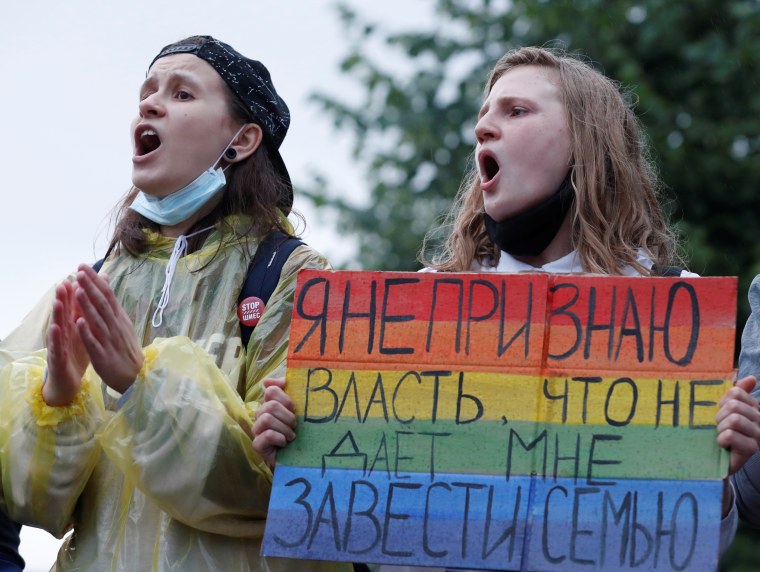Russia's Attempt to Shut down the Largest LGBT Org Fails
 |
| Gays attacked with gas and punches as They go to inside the building |
The Russian government made an unsuccessful attempt to shut down one of the country’s largest and most prominent LGBTQ rights groups, but human rights advocates say there are likely more attempts on the horizon.
A court in St. Petersburg sidelined a lawsuit that had been filed by Russia’s Justice Ministry on Tuesday. The suit accused the Russian LGBT Network of spreading “LGBT views” and engaging in activities that go against “traditional values.” In the suit, Russian officials said they want to “liquidate” the Sphere Foundation, the legal group that operates the LGBTQ organization.
Tanya Lokshina, associate director of Human Rights Watch’s Europe and Central Asia division, said she expects Russian officials to ask the court to reconsider the case.
“It’s good news for the immediate future,” Lokshina said of the court’s decision not to act on the lawsuit. “Their first step failed, but I don’t think they’re going to give up, because what happened is in sync with the ongoing, very disturbing trend of stifling independent voices in Russia.”
 |
“If you’re gay, as long as you hide it, as long as you do not speak up … it’s OK, but if you speak up … it becomes a very serious problem,” Lokshina said. “The Russian government is ready to tolerate gay people as long as they’re in the closet.”
The St. Petersburg-based Russian LGBT Network is known for leading actions against the country’s anti-LGBTQ policies and actions, including Chechnya’s anti-gay purge, which started making national headlines in 2017. Since then, at least 140 gay and bisexual Chechen men have been abused and detained in the semi-autonomous Russian region, according to Human Rights Watch.
The Russian LGBT Network defended its mission in a statement to NBC News.
“From the point of view of the Russian government, our very activity goes against the state ideology of traditional values,” Dilya Gafurova, a spokesperson for the Sphere Foundation , said. “However, despite the whims of the political climate, LGBT+ people exist. We refuse to give up and let the government shut us down; we refuse to agree that the very activity of helping LGBT+ people does not correspond to the idea of ‘charity,’ as is stated in their claim. LGBT+ people are the citizens of this country just like every other social group and deserve the same rights and freedoms.”
Gafurova added that this latest effort “seems more and more like the government is trying to make any LGBT+ activism taboo.”
“In that sense, we feel the case of Sphere’s liquidation can become the biggest case about LGBT+ in Russia. About our very right to exist,” Gafurova said.
The lawsuit alleges that the Russian LGBT Network opposes “fundamental family values enshrined in the Russian constitution” and represents a “threat to public order and the rule of law.”
Lokshina argued that the suit “is not a legal action,” rather “a purely ideological action and a blatant act of homophobic censorship disguised as a legal action.”
While identifying as LGBTQ is no longer outlawed in Russia, policies like the 2013 Russian “gay propaganda” law still stand. The law prohibits the “promotion of nontraditional sexual relations to minors,” saying that it goes against traditional family values.
In a statement on social media, Igor Kochetkov, a Russian LGBTQ activist and founder of the Sphere Foundation, echoed Lokshina, arguing that the claims in the lawsuit are “ideological rather than law-based.”
“This is political persecution at its finest. And the Ministry of Justice, this time, is not even trying to hide it,” he wrote in Russian, according to a translated version on Facebook.
Comments